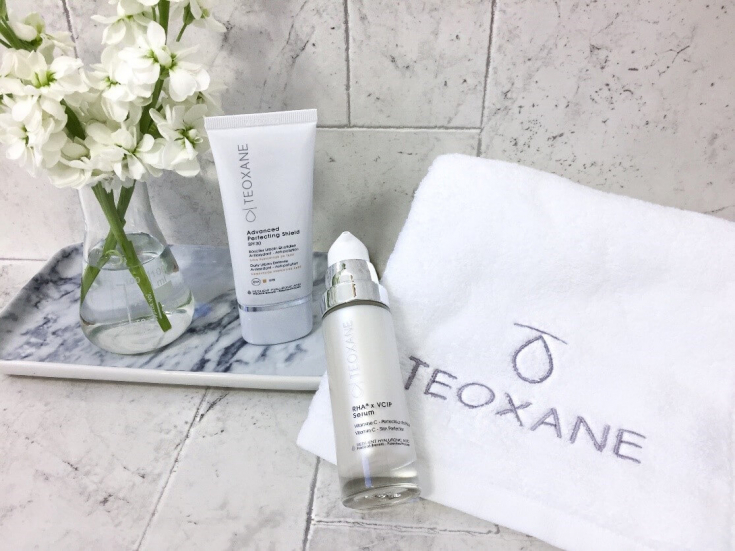Vitamin C refers to derivatives of polyoxy-γ-lactones of unsaturated carboxylic (α-gulonic) acids and is involved in the regulation of redox processes and tissue regeneration.
One of the important physiological functions of vitamin C is participation in the synthesis of collagen and procollagen and normalization of capillary permeability.
Find out more in the article on estet-portal.com which biochemical reactions vitamin C controls in skin, as well as how this data can be used in cosmetology and dermatology to combat age-related changes, age spots and improve skin quality.
- The role of vitamin C in the biochemical processes of the body
- Effects of vitamin C that it has on the metabolic processes of skin cells
- Clinical studies on the efficacy of vitamin-based productsa C
The role of vitamin C in the biochemical processes of the body
The human body is unable to synthesize vitamin C on its own.
With insufficient amount of vitamin C, scurvy develops, at the same time, excessive doses of ascorbic acid are harmful to the body and can lead to serious complications, for example, kidney stone disease.
Follow us on Instagram!
The daily dose of vitamin
However, as you know, the skin and skin appendages receive all the necessary vitamins and microelements last.
Biochemical reactions of the body are built in such a way that first important coenzymes are sent to more significant processes: vitamin C in the body is converted into a coenzyme form for participation in
metabolism of proteins, fats and carbohydrates, as well as antibody synthesis. There is therefore a need for additional
topical application of skinpreparations that contain vitamin C.
Practical case of the procedure for effective skin hydration Effects of vitamin C that it has on the metabolic processes of skin cells
One of the important achievements of modern cosmeceuticals is the market entry of
RHA® x VCIPcompany TEOXANE. The main feature of this product – is the presence of
RHA® x VCIP salt of pyruvate, which is part of the natural cycle of tricarboxylic acids. This combination greatly
facilitates the delivery of vitamin Cto the skin cells, since it is a water-soluble vitamin, and there is a lipid mantle on the surface of our skin, which can impede the permeability of substances of this group. What
effectsdo we achieve with Vitamin C products?

Ascorbic acid is involved in many processes of biological oxidation, provides
collagen protein synthesis from procollagen, nucleic acids, which is necessary for the formation of new cells and skin renewal.
Let's not let dark circles ruin your look In addition, the participation of vitamin C
in the synthesis and implementation of the action of prostaglandins and prostacyclin. In turn, the effect of a number of prostaglandins on blood circulation, including microcirculation, is characteristic, which
improves metabolismin the superficial layers of the skin and gives a more natural complexion with its dullness, to which targeted main action of RHA® x TEOXANE VCIP.
Post-procedure facial care: masking marks after correction Together with vitamins A and E, vitamin C provides
antioxidant protectionof cell membranes, increasing the activity of glutathione peroxidase, catalase and peroxidase enzymes, which is very important in resisting skin cells to lipid peroxidation processes ( SEX) – the main process that triggers the mechanisms of aging. Ascorbic acid, as a natural antioxidant, is an inhibitor of free radical processes (in LPO) and plays an important role in the regulation of such general biological functions as
cell growth and reproductionok.

Ascorbic acid is necessary for
normal functioningand formation of connective tissue, in particular intercellular substance and collagen. During the synthesis of collagen, vitamin C is involved in the hydroxylation of proline and lysine in the peptide chain.
Therefore, regular use of RHA® x VCIP as a home care promotes the synthesis of skin proteins and thus slows down the aging process.
Ascorbic acid is part of many redox reactions in the body and is involved, for example,in the metabolism of tyrosine
. This amino acid plays a leading role in the occurrence of age spots, and vitamin C, blocking the pathways for the formation of the tyrosinase enzyme, is able to significantly
lighten hyperpigmentationand improve complexion. A clinical study of the efficacy of
RHA® was conducted at the Department of Dermatology at the University of Hamburg; x VCIPcompany TEOXANE. During the month, 24 patients used the drug as home care.
At the end of the study, the following results were obtained:
In 83%, the skin looked more elastic (an increase in the density of the papillary dermis was recorded during the Ex-Vivo morphological study);
- In 89% of cases, age spots were minimized and skin tone was visibly improved;
- In 78% of cases where RHA® x VCIP Serum
- , ease of application and use of the product was recorded, as well as the absence of adverse reactions from the skin (redness, burning, itching). Choose proven and effective products for your skin so that it always shines with youth and health!







Add a comment